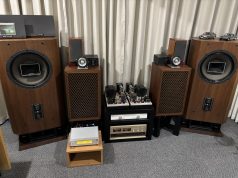This is interview has been translated from the original Spanish. For more on The Warrior Women Of Afro-Peruvian Music album and project, check the Just Play website.
The audience here in Japan might not be familiar with the complex history and ethnic composition of Peru. Can you tell us a little bit about your artistic career and what sharing Afro-Peruvian culture means to you?
I am woman who got to the stage very late because I had the responsibility to be a homemaker and manage my house. When I was young, my parents didn’t want me to be an artist. They wanted me to study a career, and that is why I couldn’t get on the stage before, as I’m doing now.
I started my artistic career 20 years ago or so. I was quite old, my kids were already married, and I was single. Then I had the freedom to immerse myself in what I liked, that is, singing, but never with the intention of becoming a renowned and sought-after artist, as I am now.
I am very proud of having achieved something I didn’t expect. Right now I am a representative of Afro-Peruvian music in this album made by producer Matt Geraghty, and I am very proud of being part of such an important project. It is important for me that Afro-Peruvian music is being listened to worldwide, like right now that you are interviewing me for a Japanese audience. Imagine that the work we, black women, have done in my country is known in Japan. I am very proud of being part of The Warrior Women of Afro-Peruvian Music.
To me in promoting Afro-Peruvian culture, it’s important to let people know that a black woman is not only a cook, laundress, homemaker or construction worker, but they have a lot of culture and artistic dedication to their country. Afro-Peruvian women are very capable and true warriors in life and in their music.
When did you start to sing and what kind of music did you like? Afro-Peruvian songs and rhythms were with you from the beginning?
I started to sing when I was very little, at school and at every celebration. On Father’s Day or Mother’s Day, I had to come out and sing. In Lima, I had a music teacher who discovered me as a singer, and she made me sing despite my shyness. Also, even though my father didn’t want me to pursue an artistic career, he always had me singing at family reunions.
So I have sung a little bit of everything like bolero, son cubano, Brazilian music. Singing is what I like and I don’t really choose a genre. I just sing!
Afro-Peruvian music has always been with me. I have engaged in singing criolla music because it is part of the history of the place where I grew up. My father was creole and a lot of creole composers and singers used to meet at my house. So I grew up in that environment and that’s why I sing criolla music.
In the promotional videos, many of the ladies mention that Peru is still a very patriarchal society. However, the power and energy of all of you (The Warrior Women of Afro-Peruvian Music) can be perceived instantly. Do you think that the Afro-Peruvian music coming from these powerful voices is being increasingly listened to and valued in the music mainstream of Peru?
I think it is. I could even say that Afro-Peruvian music is more present than criolla music itself. Young people appreciate black music a lot now.
Projects such as Just Play contribute not only to spread Peruvian music, but to make its artists stronger. I say that The Warrior Women of Afro-Peruvian Music project has showed the whole world that Afro-Peruvian women are talented and make a contribution to this country’s culture.
As a black woman, is it twice as hard to be recognized in Peru?
There are still barriers, though subtle, they are there. The black woman does not fit the stereotype of a typical woman in society. Society has stereotyped women as having to be thin, with small breasts and a small backside. And, given that the black woman is not like that, she is not embraced.
The musicians who play in the album come from Peru and the United States, mainly from the jazz tradition. How have you felt about this meeting of musicians from different corners of the world?
I think that this combination of cultures have enriched the genre we have made. The contribution of international artists such as Gil Goldstein, Howard Levy, Misha Tsiganov, Yayo Serka, Matt Geraghty and Neal Alger, now part of our music has enriched the rhythms even further. Despite not having Peruvian roots, these beautiful new sounds have strengthened the Afro-peruvian styles we captured on the album.
What are your plans for the next years?
If God gives me life and health, I will keep spreading and singing music. And, with regard to Afro-Peruvian music, I will keep supporting and spreading it wherever I go; I have an invitation to go soon to Portugal, where I will be sharing my culture.
What would you like to say to the audience here in Japan?
That I am happy that our project The Warrior Women of Afro-Peruvian Music has found its way to a Japanese audience. And I know they will love it. Japanese people appreciate a good rhythm, they like Latin music, for instance. I have a lot of friends from Japan and they really appreciate Afro-Peruvian music. I know they will love our music when they listen to it and I hope we can bring The Warrior Women of Afro-Peruvian Music to Japan.













